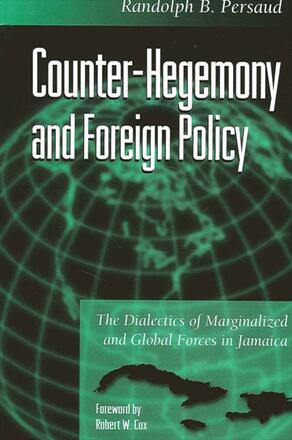
Counter-Hegemony and Foreign Policy
The Dialectics of Marginalized and Global Forces in Jamaica
Alternative formats available from:
Argues that marginalized states and peoples are capable of initiating their own foreign policy agendas.
Description
It is not uncommon for scholars and policy makers to assume that small and dependent states must follow the lead of great or middle powers. But is this always the case? Drawing on the increasingly influential Gramscian approach to international relations, this book shows the ways in which marginalized social forces in Jamaica were mobilized against the hegemonic practices emanating from the global political economy. Persaud emphasizes the counter-hegemonic cultural activities of these forces, as well as the attempt of the Jamaican government to form a global "trade union of the poor."
Randolph B. Persaud is Assistant Professor in the School of International Service at American University.
Reviews
"An interesting and provocative argument that local-level counter-hegemonic movements can shape national foreign policy and ultimately challenge global hegemonic structures." — Beverley Mullings, Syracuse University
"The theoretical sophistication of the book is impressive. This is one of the few attempts to link political and social dynamics at the local level with the unfolding of international political forces." — Pedro A. Caban, author of Constructing a Colonial People: Puerto Rico and the United States, 1898–1932